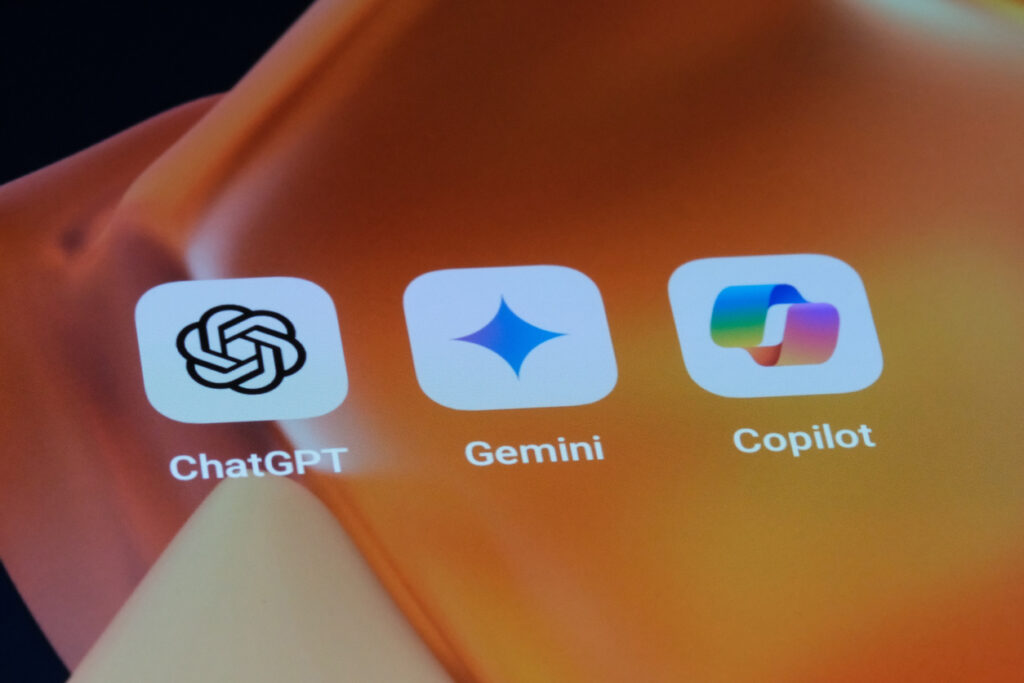Have you heard the story about a robot walking into a bar? Maybe you haven’t? Maybe it’s because artificial intelligence hasn’t perfected stand-up comedy yet.
AI can beat humans at chess, drive cars, and compose music, but making humans laugh seems to be the ultimate domain for AI. As an example, I asked ChatGPT to write some jokes for me.
Me: Write me a funny joke.
ChatGPT: Why don’t scientists trust atoms anymore?…Because atoms are what everything is made of!
Me: Please write a funny joke with some dark humor.
ChatGPT: Why are cemeteries never crowded?…Because people are dying to get in!
Me: Write a funny joke, but it’s absurdist humor.
ChatGPT: Why did Scarecrow become a successful neurosurgeon?… Because although he excelled in his field, he needed a change of scenery.
What do you think? A standing ovation? Best Newcomer at the Edinburgh Fringe Festival? I’m not convinced.
My Edinburgh Fringe musical comedy Artificially Intelligent was inspired when I asked ChatGPT to write a show based on my life, and the result was hilariously bad. I performed some of that material in the show and even got ChatGPT to write songs on the spot for the audience, which was always funny in its awfulness.
The AI generated songs telling the optometrist audience to stab the eyes of their arguing colleagues, and even telling the teacher audience to fail students they dislike so they can be more relaxed at work. But this was not independent thinking. To get results, we needed to feed ChatGPT as much information as possible. In reality, we can’t get the AI to make jokes on its own.
Most Popular
By Katie Bowles Can anyone stop Kemi Badenoch?
The problem with AI and comedy is that it lacks the human nuance that makes something funny, such as a view of life shaped by personal experience. AI may be able to create the structure of a joke, but it doesn’t have the ability to draw from personal experience. AI lacks the perspective, situational awareness, context, and cultural awareness needed to make good comedy.
Sarcasm is a great example of sophisticated human-to-human communication that relies on context, tone, and cultural knowledge, something that AI struggles to do. Unlike humans, AI lacks the ability to infer meaning beyond what is explicitly said. Sarcasm is a distinction between what is said and what is meant, and it relies on common context and nuanced expressions to make jokes, but AI only processes text and cannot pick up on the audio and visual cues that signal sarcasm to humans, such as sarcasm in the voice or a neutral expression. AI needs to let you know that it is actually joking.
AI has made remarkable advances in areas such as natural language processing and machine learning. These technologies enable AI to understand and generate text, including jokes. AI models such as OpenAI’s GPT-3 and its successors have demonstrated the ability to generate puns, one-liners, and even short comedy skits. However, these jokes often rely on simple wordplay and common joke structures and are unoriginal.
Despite all these limitations, will AI ever be entertaining? Absolutely not at present, but theoretically it could be in the future. If technology advances to the point where robots can walk around with free will and independent thought, experiencing life and maybe even emotions, then in theory they will begin to have enough perspective to create comedy and engage in activities that vocalize their experiences as AI. However, this would create its own culture and would only be relevant to other AIs.
The truth is, audiences really enjoy the AI-generated material on my shows, even if it’s a horribly lame joke, but does it technically qualify as funny?
Anesti Danelis: Artificially Intelligent runs at Underbelly, Bristol Square, Edinburgh until 25th August.

